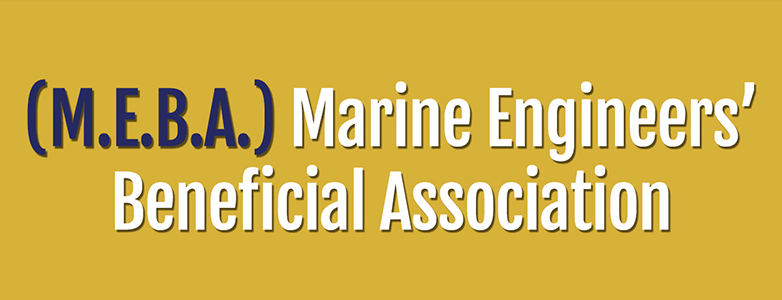||| FROM KRISTIN HYDE for MARINE ENGINEERS BENEVOLENT ASSOCIATION |||
Seattle, WA – More than 400 Washington State Ferries’ engine room crew members say the state’s refusal to end widening pay gap with deck counterparts, over-reliance on overtime, and lack of investment needed to retain and recruit experienced staff will push the system further into crisis.
Washington State Ferries is the largest passenger ferry system in America, a critical link in the Washington state transportation system. With aging and insufficient number of vessels, and a fleet in constant need of repair from lack of investment in maintenance, a worsening engine room workforce shortage, ferry service has become unreliable. In 2023, there were more than 3,500 canceled sailings and service disruptions continue, threatening the health and livelihoods of people and businesses in ferry dependent communities.
Four hundred of 1800 Washington State Ferry employees are engine room crew, highly skilled marine engineers who operate, repair and maintain ferries. These essential engine room crew are represented by the Marine Engineers Beneficial Association, the nation’s premier union representing marine engineers and deck officers.
Eric Winge, Washington State Ferries representative for M.E.B.A said: “The arbitrator’s decision on contract terms was a blow to our crew members, who are already at the breaking point. The state has no problem asking engine room crew to work 100 hours of overtime per month while they refuse to address the root cause of a dwindling workforce – uncompetitive pay. The widening gap between pay for our highly trained engineers and their above deck counterparts is insulting and demoralizing. Nearly half our senior crew is up for retirement in 2027. If the state can’t adequately staff the limited number of ferries operating today, how will they do it in three years, or ten when we have a handful of new highly technical electric ferries that will depend even more heavily on experienced engineers?”
Brandon Powell, an oiler on M/V Tacoma on the Bainbridge-Seattle run, shared: “You can’t just hire anyone to do these jobs. Even entry level oilers require years of training and sea time to become licensed credentialed engine room crew. I took this job with the ferries instead of a higher paying position in the private sector so I could be there for my five kids and my wife. But when we are struggling to make ends meet, and management actively disrespects us, it’s pretty hard to justify staying in this job.”
Cameron Ruth, a chief engineer on the M/V Yakima Anacortes-San Juan Islands run added: “Washington State Ferries’ management fails to see the value of fairly paying the staff that keep the boats running, on average paying engineers 19% less than equivalent positions on deck and in the wheelhouse. Because of the lower wages, it has been much harder to attract and retain marine engineers with the necessary education and experience in the field to run the boats efficiently. The state needs to invest not only in new boats and captains, but also in its forgotten engineers that silently keep vessels running day in and day out.”
Roland Rexha, Secretary Treasurer of the Marine Engineers Beneficial Association (M.E.B.A): “The state didn’t bargain in good faith, and they punted the ball to an out of state arbitrator with no experience in this industry. The lack of highly trained, essential engine room crew to run ferries each day is the number one reason for canceled ferry sailings, and low pay is the number one reason why the ferries are short staffed. Other ferry systems around the country that have invested in competitive wages have seen their engine room workforce shortage disappear and been able to restore reliable, on-time, service to passengers. It’s up to state legislators and the new administration coming in 2025 to right this wrong. WSF management is in denial of their inability to run the ferry system. And now they are putting this on the legislature to fix our ferries and bring the service that the public needs on a daily basis.”
**If you are reading theOrcasonian for free, thank your fellow islanders. If you would like to support theOrcasonian CLICK HERE to set your modestly-priced, voluntary subscription. Otherwise, no worries; we’re happy to share with you.**









So, apparently the MEBA membership is unhappy with the results of arbitration.
I am generally very supportive of unions in the private sector and there are some arguments to be made for unions in the public sector as well, but the current situation is simply untenable. MEBA members cannot be allowed to hold the ferry system hostage with work slowdowns in a futile attempt to get better wages out of the WSF. It is bad faith on the part of the union members.
I don’t know what oilers and engineers are currently paid nor their benefit packages (when I was in the Operating Engineers, the pay and benefits were substantial). But I do know that if those members are not happy with the reliable, safe, go-home-every-night jobs that they have, then they should look elsewhere for employment. Perhaps their wage demands are reasonable, perhaps not, but when you join a union and work out of the union hall, you accept that the union is doing the negotiating on behalf of the membership and the MEBA agreed to arbitration. The MEBA members can either accept the arbitration outcome or they can quit. But they are doing nothing for themselves by punishing the citizens of San Juan county in an attempt to force WSF to pay them more.
MEBA was founded in 1875 and has consistently argued for the past 149 years that wages and benefits are too low. Nothing new or unusual this every two year unions contract session with WSF … an arbitrator makes the wage and benefits decision. The union can’t strike in Washington State by state law. But they can put pressure on WSF by an occasional crew member not showing up for an assigned shift and nobody else steps up when the dispatchers attempt to find replacements … seniority system also complicates finding replacements.
The results of the arbitrator have to be announced by 30 September. The general public hasn’t been told how far apart the State of Washington and MEBA are.
Union contracts are public documents an available from Washington State Office of Financial Management, which is the agency responsible for union contracts.
The state legislature has approved general wage increases in addition to the current union contract wages the past two years. They vary by union contract, but for example, the increase in MEBA licensed engineers were increased 5% July 1 2023 and another 4% July 1, 2024. So we already know they are starting from 9.2% higher than the wages in the current 2023-2024 contract.
For the general public, we will almost certainly see yet another ferry fare increase, but that has pretty much become an annual given this century.